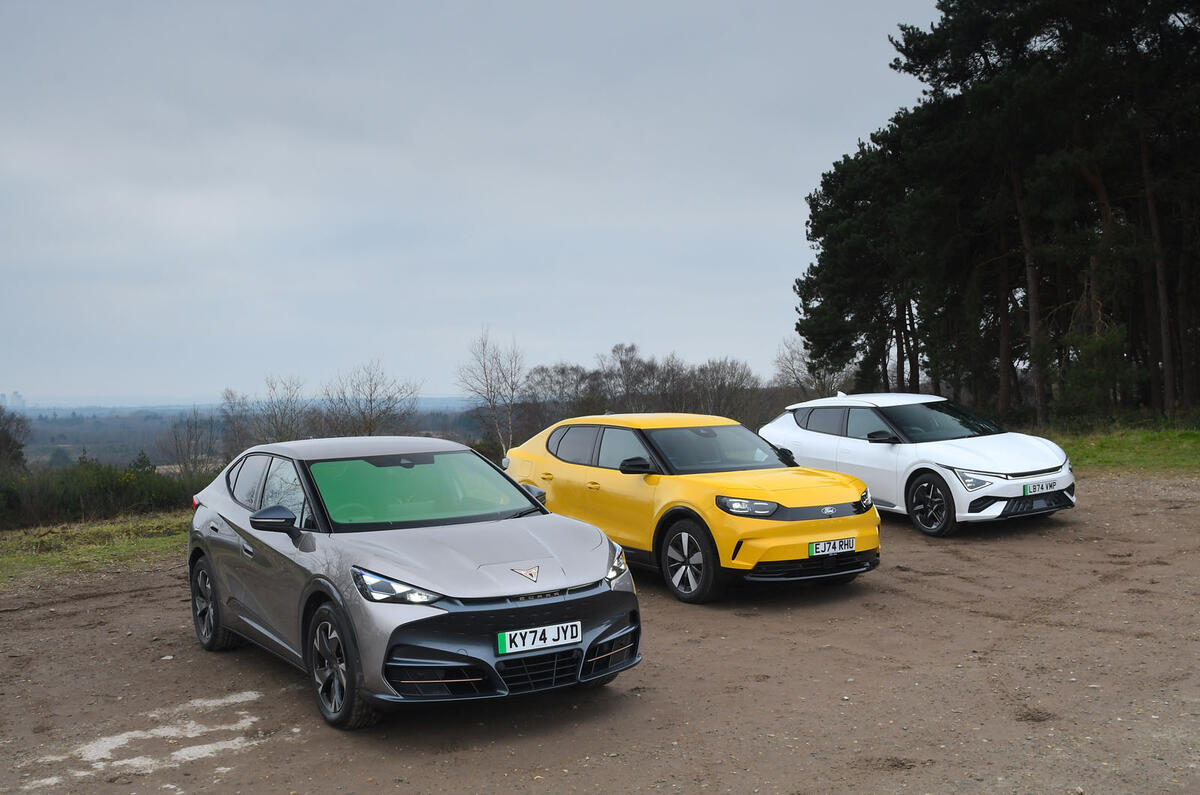The UK automotive industry is calling for more to be done to encourage private buyers into electric cars, as the latest sales figures reveal EV uptake is falling well short of the government's mandated targets.
The 139,345 new cars registered in the UK last month included 29,634 pure-electric models, a significant 42% increase over the figure from this time last year, taking EVs to a 21.3% market share.
Sales of diesel cars, meanwhile, were 7.7% down, and there was a 15.3% drop in the number of petrol cars - but hybrid and plug-in hybrid sales were more steady, climbing 2.9% and 5.5%, respectively.
The rise of electrified car sales means petrol now fuels just over half of the UK new car parc, at 50.3%, and just 6.2% of new cars are diesel.
Nonetheless, the Society of Motor Manufacturers and Traders (SMMT) notes that the EV market share is still short of the 22% target that had been set for 2024 under the government's zero-emission vehicle (ZEV) mandate - and further still behind the 28% EV mix that manufacturers must achieve in 2025.
The government is currently consulting with the automotive industry on potential changes to the ZEV mandate framework, in recognition that organic demand for electric cars falls short of the targets imposed by the scheme – which rise in increments to 80% in 2030. Some car makers are having to sell EVs at a heavy discount or buy ZEV credits from rival firms to avoid highly punitive fines for missing the targets.
The EV market share will increase to 23.7% by the end of the year, the SMMT forecasts, still well short of the 28% mandate - and BVs are expected to comprise just 28.3% of the market in 2026 against a target of 33%.
"This gap between demand and ambition is why the review of the Vehicle Emissions Trading Scheme and its flexibilities is essential and must deliver meaningful changes urgently," said the SMMT, "else there will likely be significant negative consequences for the market, industry and potentially the consumer."
The trade body highlighted that discounts on EVs topped £4.5 billion in 2024, which "helped drivers make the switch", but said that "consumers are still reticent, looking for greater encouragement from government and elsewhere".
There is currently no government-backed incentive scheme for private buyers to switch to EVs, following the removal of the plug-in car grant in 2021, so "retail buyers still lack a meaningful incentive to buy an EV", the SMMT added.
Furthermore, the UK's Expensive Car Supplement (ECS) will be applied to electric cars from 1 April, which means any electric car costing more than £40,000 – a threshold set eight years ago – attracts a £3110 tax bill over the first six years of ownership.
Because of the higher costs of producing electric cars, the SMMT says, the change applies to "the majority" of EVs on the market, and "will impact both the new and used car markets, undermining the goal of a mass-market transition".
The SMMT added: "As a result, the industry is calling for tax plans to be revised to ensure the system is fair and avoids dissuading those who want to buy an EV."
SMMT chief executive Mike Hawes called the imposition of the ECS on electric cars "the wrong measure at the wrong time".










Join the debate
Add your comment
The private buyer does need some encourage to buy an EV if the Govt has any chance of getting better take up. However I am dubious of the value of reinstating a grant for new EVs as this would just be a subsidy for the manufactures. But I would be in favour of a grant for used EVs as this might appeal to those who like something for nothing and go a little way to hold up residuals. It is the horrendous depreciation that frightens me from buying new. With inflation having increased car prices by 25% since 2017 when the luxury car tax was introduced and EV prices still around 20% more than their ICE equivalent the £40k threshold is capturing quite modest (non premium) family size EVs into £600+ annual VED trap. I think the threshold for EVs should be raised to £50k.
The issue of the higher rate of VED certainly never affected the sales volumes in 3 series, C classes and the sea of SUVs from JLR and the like, many of which cost well in excess of 40k and had plenty of custom from private sales.
It's nothing to do with tax/VED, it's simply down to comedy companies like Vauxhall wanting 40+k for shit box Astras and near 40k for Corsas.
Build reasonably priced cars and the customers appear, regardless of road tax.
It's an attempt to keep polution off the streets, you should know that by now.
As to 40k electric Corsas, get the 27k version or a 23k Renualt 5e. Reasonably priced BEV's do exist but you're too blinkered.
Same old daft calls from the industry. We cant hit the targets so you need to throw more tax payer money at the problem. NO. You need to remove the targets.
We keep on being told how good EVs are, yet the stupid people who buy new cars with their own money keep on buying the wrong ones. Perhaps we should accept that people arent daft and want to spend their own money on something they actually want, not what someone else thinks they should buy.